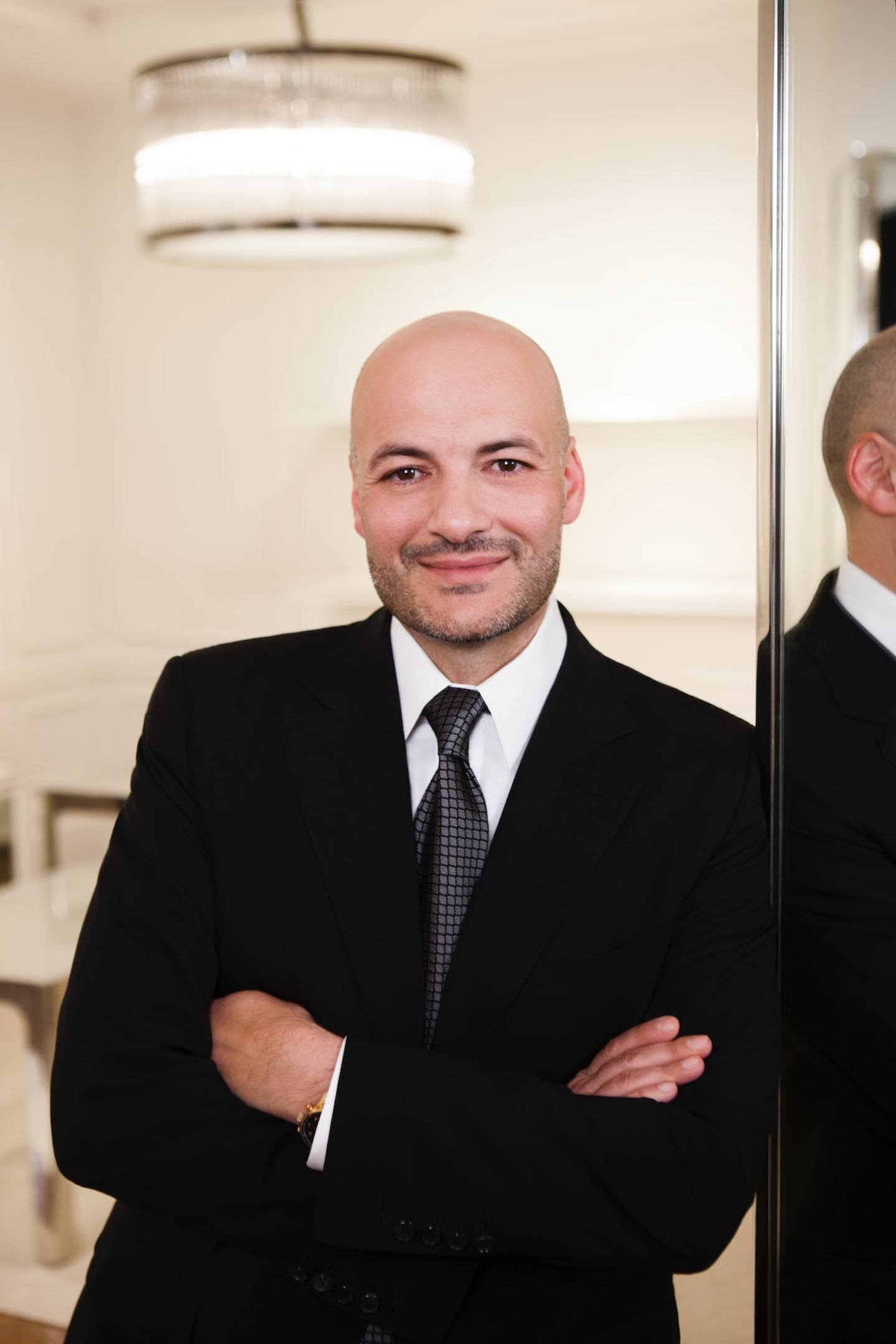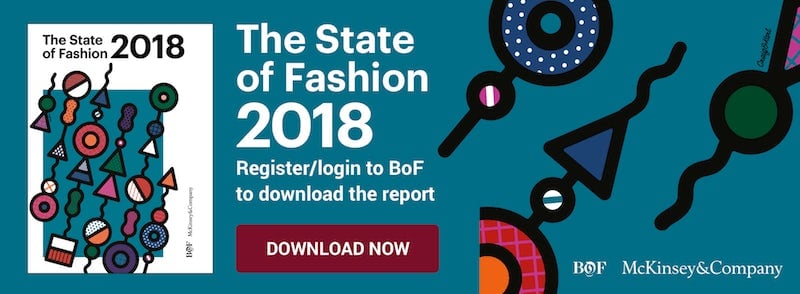
The Business of Fashion
Agenda-setting intelligence, analysis and advice for the global fashion community.

Agenda-setting intelligence, analysis and advice for the global fashion community.

This interview is part of BoF’s State of Fashion 2018 report, published in partnership with McKinsey & Company. For more insights into the challenges and opportunities that lie ahead for the global fashion industry, download the report here.
NEW YORK, United States — Since his appointment as chief executive of Coach in 2014, Victor Luis has repositioned the American leather goods company as a modern luxury brand, with a focus on global expansion and brand acquisition to bolster the once-struggling business.
BoF: The state of fashion is uncertain and challenging right now — how are you managing through it?
Victor Luis: In an increasingly fast and transparent world, there is a need for continuous innovation — but there's so much that is happening all the time that you absolutely need to be reactive, nimble, flexible without losing sight of the longterm. So the idea of being consistent, of remaining true to the brand, of remaining true in your communications with consumers is absolutely vital through those periods.
ADVERTISEMENT
If you listened to our last three or four earnings calls you'll hear the word “unpredictable.” We're not in the “let's do a financial flip tomorrow” or “let's create a new idea and then go and move on to the next one” game. We're in the brand-building business. For me product is everything; everything starts there and then it’s [about] how you actually build emotion in storytelling around that, because, if it's just about the function, you literally don't win. At the end of the day that takes time. It takes consistency. Build a relationship between a brand and a consumer. The short-term stuff will come and go.
BoF: While brand remains very important, of course, there are all of these new businesses that become very popular, very quickly on the basis of a single product. They aren’t at the scale of Coach of course, but if people latch on to a product, a company can grow really quickly.
VL: Successful brands start with great product. We started as a manufacturer on 34th Street. It started with six guys making product, making belts and wallets, really designing them one at a time as craftsmen. That's a different culture than say, "Okay we're a design-led company." That starts with someone who has an idea and then goes off and searches for others to help them make or develop product. Handbags come naturally to us, leather comes naturally to us. As we get into footwear — which is one of the reasons we acquired Stuart Weitzman — as we get into outerwear and into other categories, it takes time. These are not things we can just do overnight. The challenge of going from handbags to other categories, or from apparel to handbags is not easy. We know that incredibly well. You've seen that with many other brands in our space and others. I think the internet allows for ideas to reach consumers much more quickly and flexibly. That I would certainly agree with. I think that allows entrepreneurs to come up with very singular, focused products that allow them to break through a little bit.
BoF: So in a product-led world where brand remains important, what do you see happening to lifestyle brands? Do you still see that as being a compelling proposition?
VL: I do, as long as you don't try to create a monotone world where you try to fill a consumer's life with everything that's one expression. It's been part of what we've discussed relative to the Kate Spade world. We've decided we're not going to invest in the Jack Spade business and men's. Kate Spade has quite a few licenses in home and other categories and we're going to review those. I'm not a believer that you can have someone from head to toe and then go to their home and expect their life to be Kate Spade. I do believe that within each category, Kate Spade has an opportunity [in] the main fashion categories, to create some of the ideas of “the best of .”
Wholesale relationships lead to very tough decisions on whether you can trust that your brand's going to be treated well because you're impacted by the performance of the broader chain.
BoF: As a vendor who is operating in some of the troubled department stores, what do you do?
VL: I believe that there's going to be some more continued dislocation because, at the end of the day, we have great partnerships — with Nordstrom, with Macy's, with Neiman Marcus, with European department stores, [and] we're especially strong in Asia. I think that in each one of those markets, the role of wholesale is quite different. In the luxury space, wholesale practically does not exist in Asia. Even if department stores exist, we manage our businesses directly within that channel because they're all concessions. Those Asian department stores have been able to build a loyal base of vendors where valuation [and] consumers' perception of products is not destroyed because of promotions and everything else. That business model, I believe, is more sustainable.
Europe has less dependence on overall department stores because there are high street locations combined with some department stores, but also you have a very healthy and fragmented select shop or speciality store world. But I don't think it's easy for those people to scale. The idea that Colette is successful in Paris and [therefore] can open 30 stores across Europe is very challenging. Those concepts are unique because they have special meaning in the cities in which they are in. They're unique events. So how they scale is through something like a Farfetch or through online and through other players.
ADVERTISEMENT
Then you have the US where, quite frankly, the department store channel has played a very significant role both in distribution at scale but, of course, because it's mostly wholesale relationships, they have not believed in the concession game as much. They have some branded business, but they also have some daily business, a more commoditised business where price and convenience plays more of an important factor, that's where dislocation comes from, right? You can't go on Amazon and find the Gucci offer, but you can go on Amazon and find the sock, the underwear, the T-shirt and maybe five or six other items that are daily items that you would've typically gone to department store X for. That shrinks their base and so the added-on sale becomes more difficult. As a result, I think we're going to see a need for differentiation. How many malls is that? How many department stores is that? It probably points to some form of continued shrinkage where it will find its natural place.
BoF: Another big industry theme to watch next year is the continued growth of discount channels — even in Europe and Asia.
VL: Right. But remember Europe is protected through a couple of things; one is fragmentation. Italians are not necessarily shopping in the UK on Department-Store-UK.com nor Germany nor others. And then two, you actually have regulations that manage when you can and can't go on sale. So we're protected from ourselves by the government. In the US, you have wholesale relationships where they own the inventory, you cannot tell anyone what they should or shouldn't price it at. That leads to very tough decisions on whether you can trust that your brand's going to be treated well because you're impacted not by your performance, but by the performance of the broader chain. Those are tough, tough decisions.
BoF: Looking towards 2018, how do you think things are shaping up?
VL: My confidence is in the long-term health of our industry in the sense of a very strong belief that consumers will continue to look for fashion as a way to express themselves, and within the fashion categories I especially have a lot of confidence in leather goods. I have a lot of confidence in footwear because of the role that it plays from above — that wonderful unique combination of fit and comfort combined with branding. There’s obviously going to be continuing numbers of consumers who come up into the premium space, but there will be some commoditisation of apparel because of fast fashion and what's happening online. I especially like more branded apparel, outerwear and a few other places where, again, brand and logo can create value for us and give value to consumers.
This interview has been edited and condensed.
Related Articles:
[ Victor Luis on Transforming Coach in Turbulent TimesOpens in new window ]
[ Victor Luis on Why Coach Inc Became TapestryOpens in new window ]
[ With Kate Spade Acquisition, Coach Sets Course for 'Modern Luxury' DominationOpens in new window ]

From analysis of the global fashion and beauty industries to career and personal advice, BoF’s founder and CEO, Imran Amed, will be answering your questions on Sunday, February 18, 2024 during London Fashion Week.
The State of Fashion 2024 breaks down the 10 themes that will define the industry in the year ahead.
Imran Amed reviews the most important fashion stories of the year and shares his predictions on what this means for the industry in 2024.
After three days of inspiring talks, guests closed out BoF’s gathering for big thinkers with a black tie gala followed by an intimate performance from Rita Ora — guest starring Billy Porter.